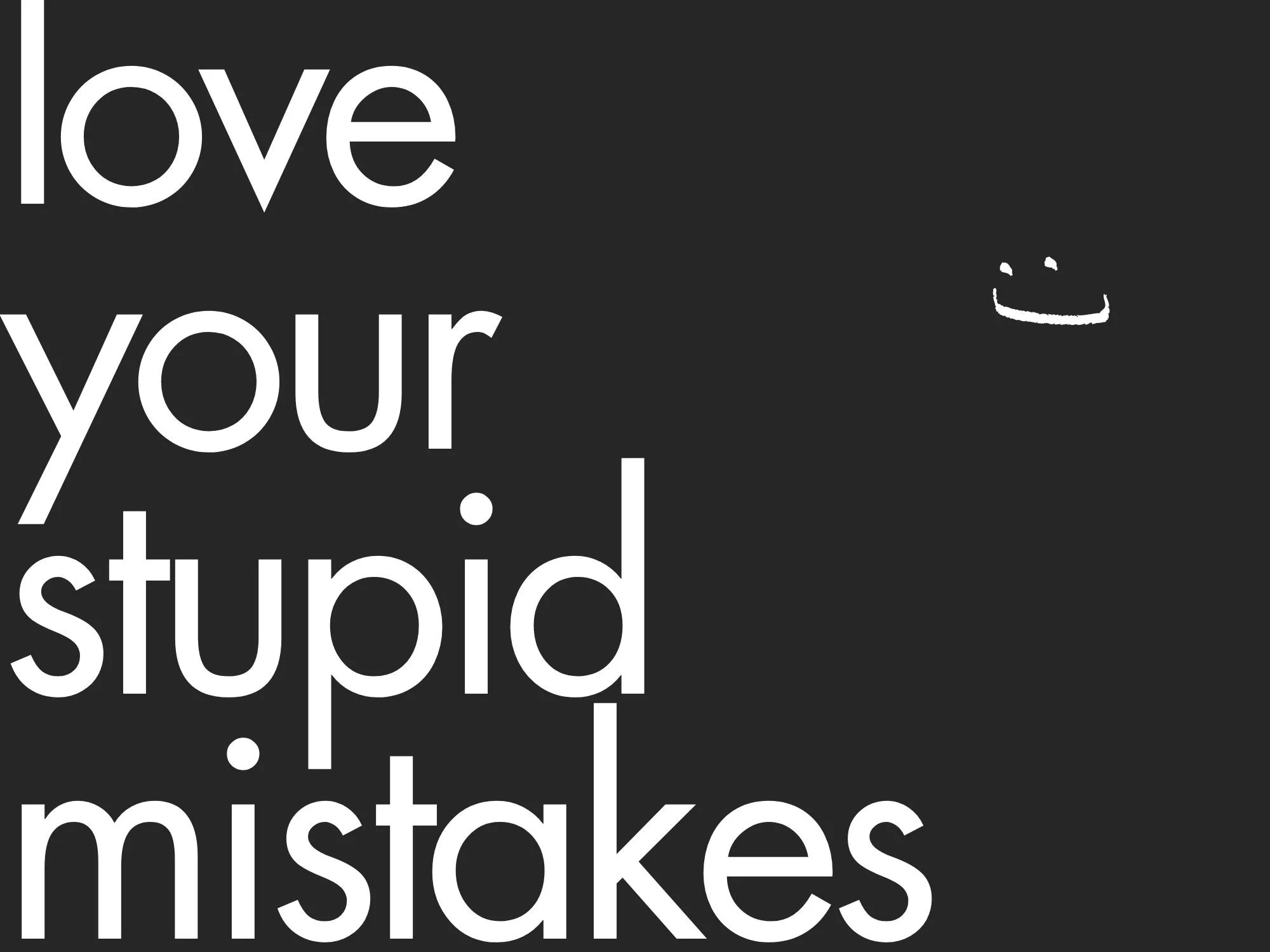How to Embrace Your Mistakes (7 pretty good tips)
Mistakes are not mistakes. They’re not setbacks, but steps forward, cleverly disguised as setbacks. Without failure or mistakes…no growth.
I know it sounds trite, but stay with me. Every mistake makes you a little bit smarter. They’re like signals that something isn’t working, so you adapt, change course or strengthen the weak point.
And yea, they’re freaking annoying.
I’ve had more fails than wins. But they always lead to a win, eventually. Or I get a key insight that proves to be pivotal in some way.
So I put together this list of tips on how to embrace mistakes better.
Now let’s do this!
Table of Contents
Makin’ Mistakes—the Benefits
Keeps you humble
Cultivates a growth mindset
Makes you process-oriented
Build new skills (rather than plateauing)
Make you mentally stronger and happier
It’s a clue about where to focus for growth
Strengthens problem solving and critical thinking skills
Support tinkering and leads to refreshing and innovative ideas
How to Embrace Your Mistakes (7 tips)
1. Try A Lofi Mindset
Lofi embraces imperfection. It’s part of the DNA. And that’s a pretty dang healthy perspective.
(perfect for reframing mistakes)
A lofi attitude embraces unpolished sounds and quirks that could be called mistakes (like detuned notes or glitches).
But it’s cozy. And calm. And nostalgic. And people freaking love it.
Why? Because it’s more human.
At least, that’s my theory—it helps with not feeling poo about making mistakes.
2. And Don’t Be So Serious
Levity and humility help with everything.
So I try not to take myself or the things I’m making too seriously. That’s not to say it’s unimportant. But if I’m too attached, things get…stressful.
If I’m wallowing in mistakes or feeling shtty about making one, it’s usually because I’m too attached and unwilling to analyze it objectively.
So I take a beat. I look at the brighter side. I laugh at myself.
3. Also, Make Easier Mistakes
You can’t always control the mistakes you make.
Or can you?
There is a way to boost your chances of having the right kind of mistakes—ones you can easily manage.
The idea is to work on things that are within your zone of proximal development, which is the place just beyond your current knowledge and skills.
It’s not too challenging, but also not too easy. And you’re more likely to be able to solve problems and mistakes when working in this zone.
So look at the mistake you’re dealing with. Is it something you can realistically solve or is it something that’s actually way outside your current skillset?
There’s no shame in backtracking. One step backwards, two steps forward.
4. Study People Before Their Success
I love reminding myself that everyone (especially artists I look up to) experiences mistakes, failures and setbacks.
So I like to look to people before their success. It’s helpful and comforting.
For example, this video of Ed Sheeran before he could sing is awesome for motivation.
The next time you’re struggling to embrace your mistakes, check out some biographies and stories about success. You’ll realize the journey is always full of ups, downs, mistakes and more.
5. Shift Focus
Don’t focus on the mistake. Focus on the many things you do well (that were once hard).
Zoom out.
Write down your strengths and recognize your awesomeness. If you have old recordings, writings or examples of yourself from years ago, look at them.
This really highlights how far you've come. Because it’s easy to forget. But staying stoked for everything that’s going right (or has gone right) makes mistakes way easier to handle.
6. Have a Post-mistake Action Plan
If you really want to nerd out, you can try planning ahead for mistakes so when they show up, they’re easier to handle.
Let’s call it a post-mistake action plan.
This could be a list of next best actions or a full-blown workflow for damage control.
The more mistakes you make, the more dialed in you can get at handling them.
Document that process and turn it into power.
7. Get Some Support
If you’re really struggling with a serious setback, getting some outside help (like a mentor) is a smart move.
Even chatting with friends could expand your perspective on things.
The point is, the idea that you need to do everything (and overcome everything) on your own is bogus. Everyone—everyone—gets helps on the way up.
It’s smart to accept it. The smartest, most successful and happiest people do.
So that’s a wrap!
Now go out there and give your ugly mistakes a hug.
Later ✌️
Want More? Nice. Here’s More.




![7 Goals for Driven, Creative or Adventurous People [2026]](https://images.squarespace-cdn.com/content/v1/61454c3a9e607805cad7423a/3ca024d9-8426-4cdf-9235-b0f2df252373/personal-goals-new-years.jpg)
